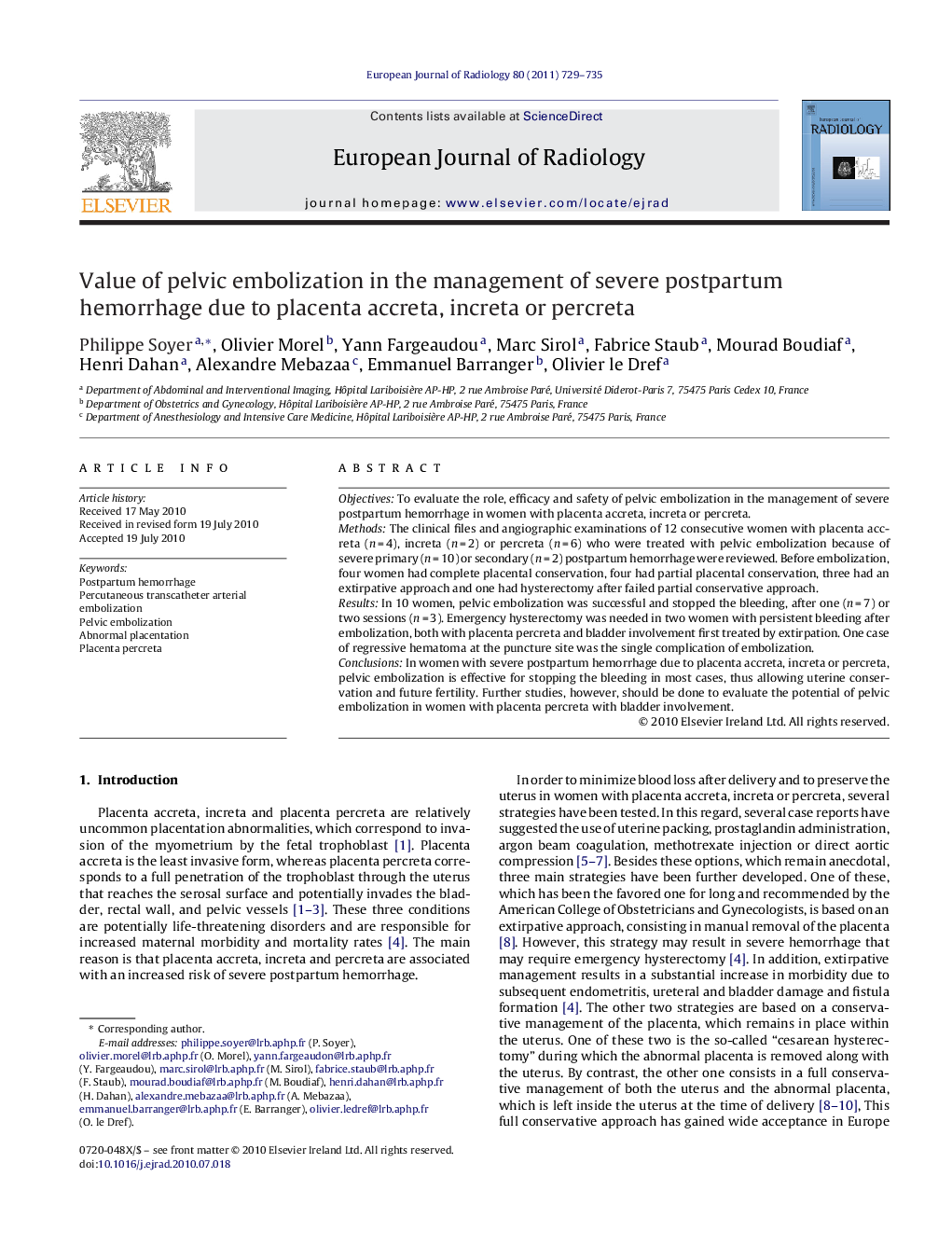| Article ID | Journal | Published Year | Pages | File Type |
|---|---|---|---|---|
| 4225817 | European Journal of Radiology | 2011 | 7 Pages |
ObjectivesTo evaluate the role, efficacy and safety of pelvic embolization in the management of severe postpartum hemorrhage in women with placenta accreta, increta or percreta.MethodsThe clinical files and angiographic examinations of 12 consecutive women with placenta accreta (n = 4), increta (n = 2) or percreta (n = 6) who were treated with pelvic embolization because of severe primary (n = 10) or secondary (n = 2) postpartum hemorrhage were reviewed. Before embolization, four women had complete placental conservation, four had partial placental conservation, three had an extirpative approach and one had hysterectomy after failed partial conservative approach.ResultsIn 10 women, pelvic embolization was successful and stopped the bleeding, after one (n = 7) or two sessions (n = 3). Emergency hysterectomy was needed in two women with persistent bleeding after embolization, both with placenta percreta and bladder involvement first treated by extirpation. One case of regressive hematoma at the puncture site was the single complication of embolization.ConclusionsIn women with severe postpartum hemorrhage due to placenta accreta, increta or percreta, pelvic embolization is effective for stopping the bleeding in most cases, thus allowing uterine conservation and future fertility. Further studies, however, should be done to evaluate the potential of pelvic embolization in women with placenta percreta with bladder involvement.
